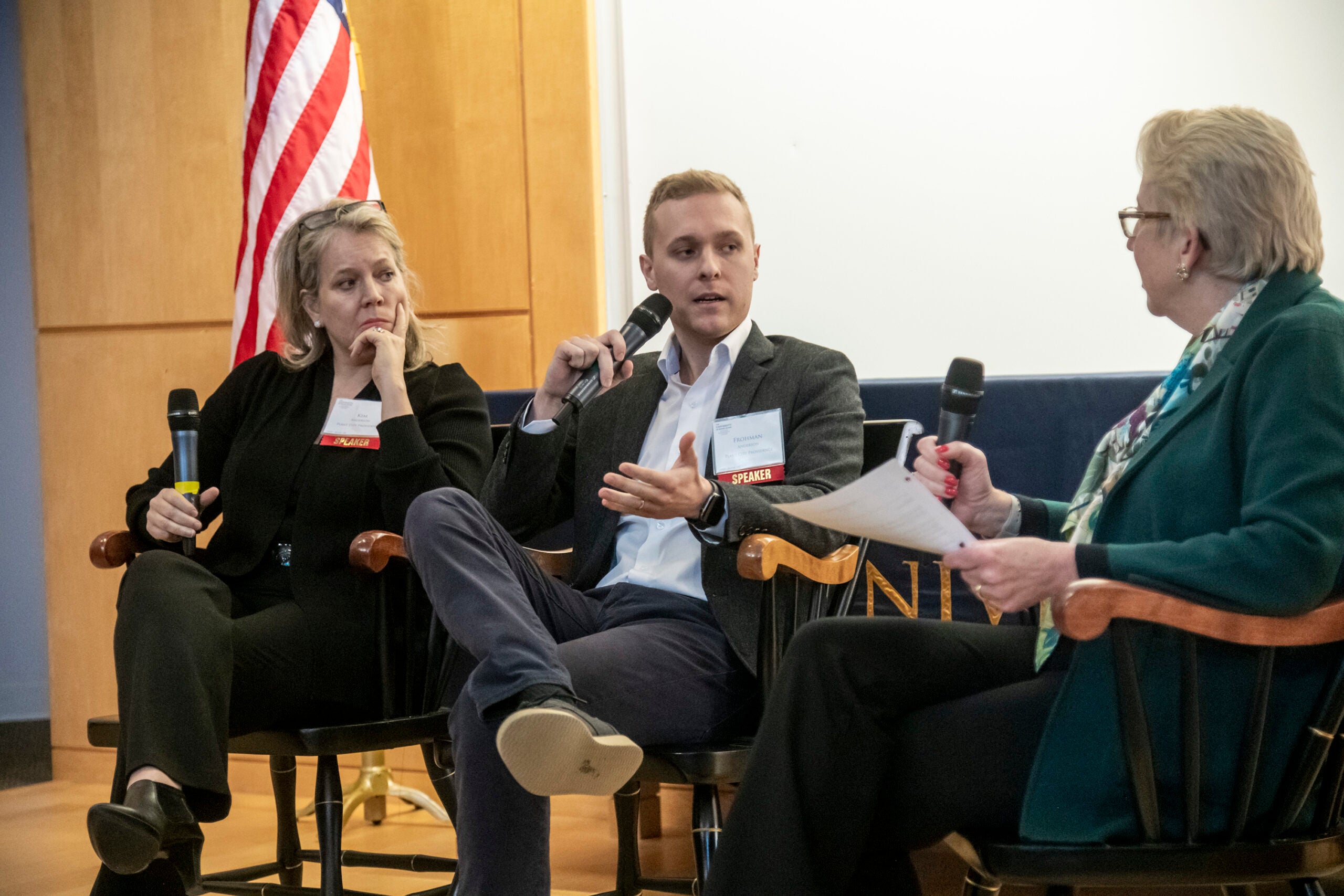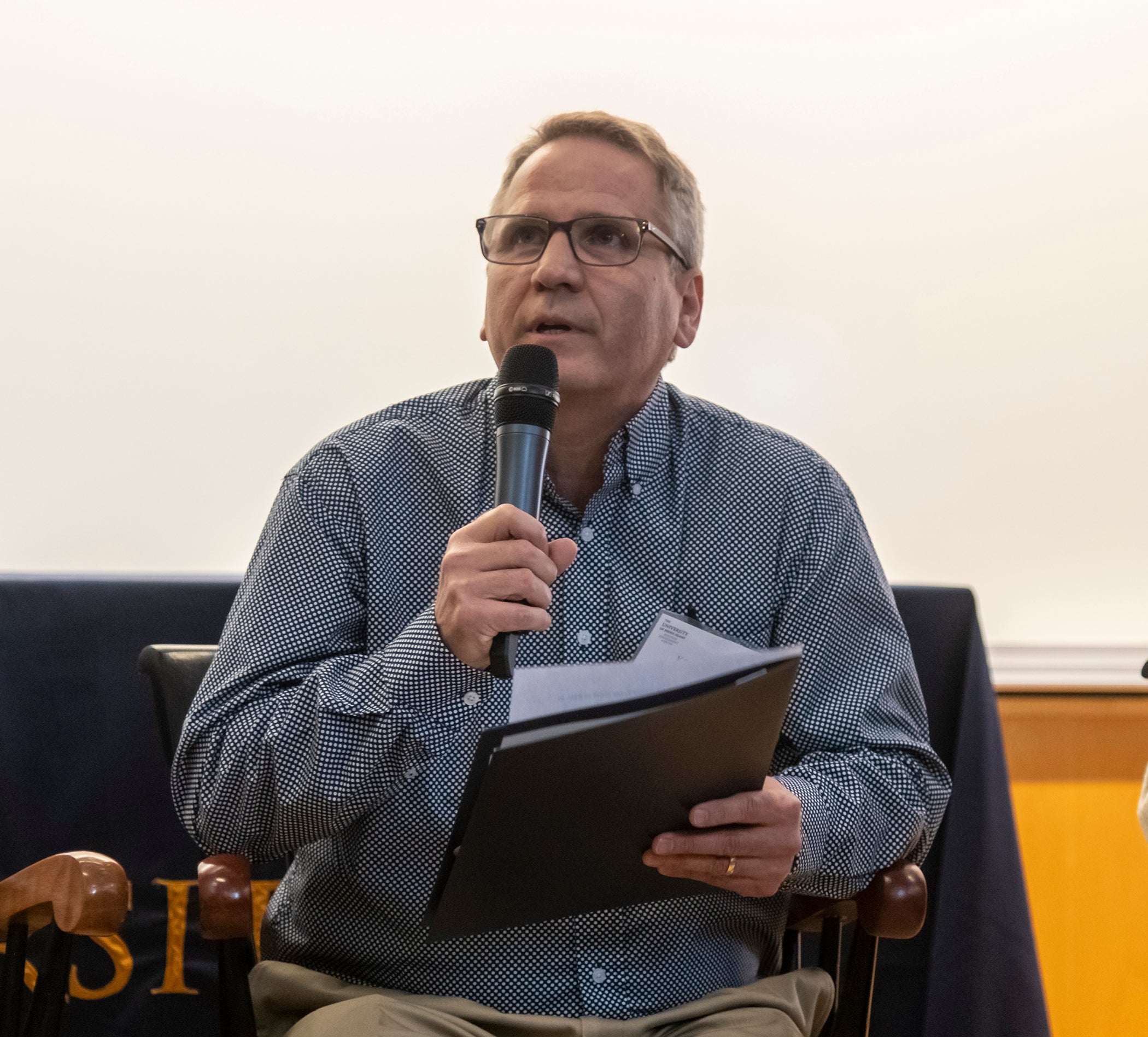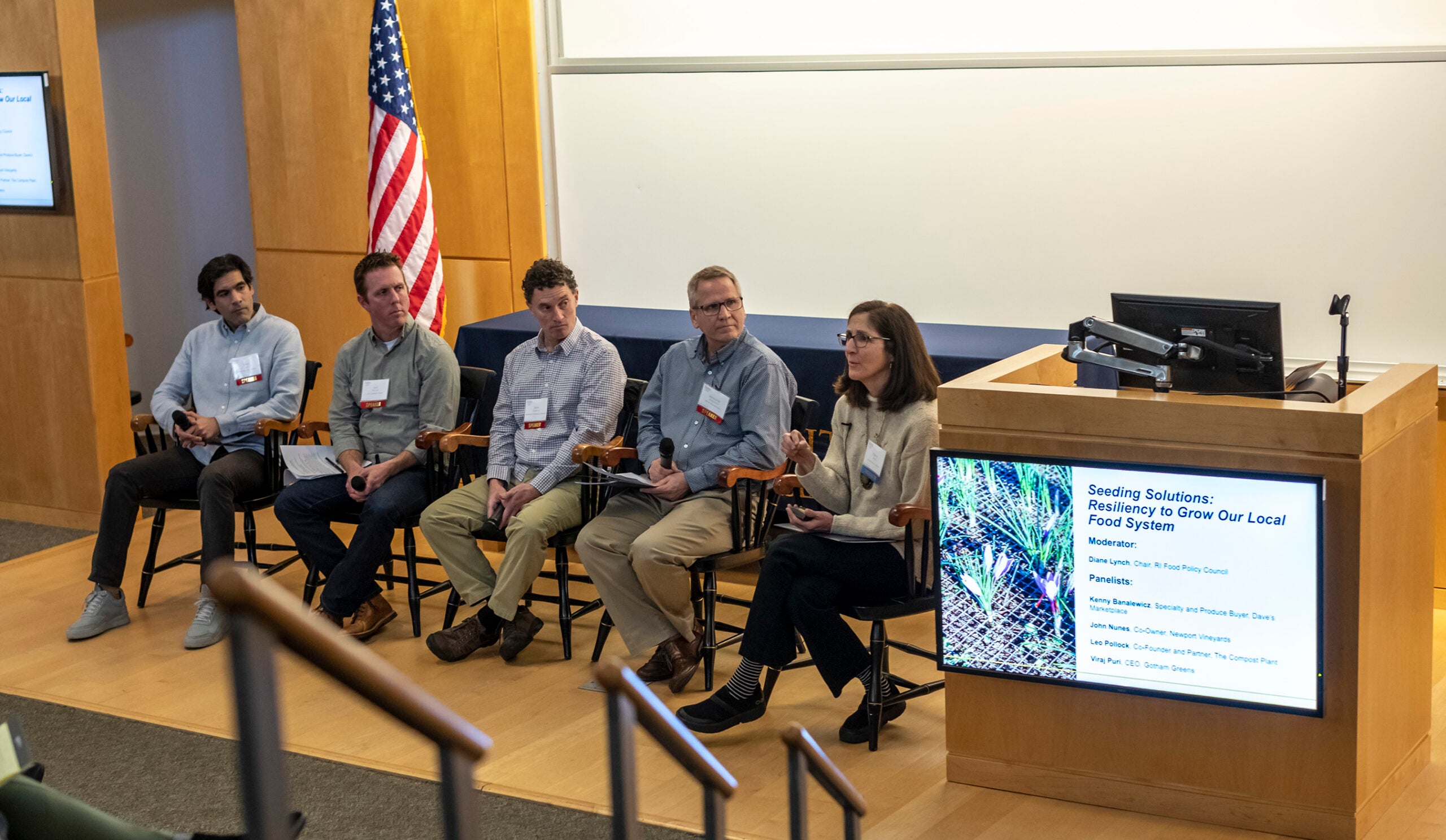KINGSTON, R.I. – January 22, 2020 — According to the National Oceanic and Atmospheric Administration, temperatures in Rhode Island have increased by more than 3 degrees Fahrenheit since the beginning of the 20th century. Since 1930, the sea level at Newport has risen by more than 9 inches – faster than the global average. With these realities as a backdrop, the University of Rhode Island held its fourth annual Rhode Island Food System Summit to examine the effects of these growing environmental challenges on the state’s food ecosystem.
“This is a pivotal subject at a pivotal time,” said URI President David M. Dooley. “We can no longer say that ‘climate change is coming,’ we can say with confidence it is here and that, unfortunately, initial scientific estimates of its impacts understated the actual magnitude of the problem and how soon it would arrive.”

The event, the ‘Intersection between Climate Risk and Food,’ held Jan. 15, drew more than 250 individuals, representing farmers, producers, consumers, business owners and entrepreneurs, community organizations, and others. It was sponsored by the URI Business Engagement Center, the URI College of the Environment and Life Sciences, URI Dining Services, the Rhode Island Department of Environmental Management, and the Rhode Island Food Policy Council.
“The role of the University of Rhode Island in all of this is to be at the forefront, providing scientific and engineering expertise to help guide policymakers, those in the private sector and others to move forward. It is part of our mission. It’s intrinsic to our identity as a land grant and sea grant institution. URI will be part of the solution not only here in the United States, but in other parts of the world,” Dooley stated, noting URI initiatives in West Africa, Indonesia, the Philippines and Vietnam.

Panel discussions focused on building resilience – in terms of how climate risk may affect Rhode Island’s ability to produce food within the state; seeding solutions to grow its local food system; and building resilience at the community level to ensure food access in the face of adverse and extreme weather shocks.
Kenneth Ayars, chief of the Division of Agriculture for the RI Department of Environmental Management, briefly discussed the NOAA report and projections for rising temperatures and sea levels in the next century as well as the need over the next 10 to 20 years to markedly reduce CO2 emissions, which are driving some of these increases.
“We can accomplish these changes, but it is going to take more than what we’ve done so far,” said Ayars. “One of the biggest levers is the importance of local food systems. Local food systems help mitigate greenhouse gas emissions. This is something we need to keep focusing on – it’s important and needs to be a center of our strategy going forward.”
Surprisingly, Rhode Island produces less than 5% of the food that residents eat. Despite the importance of the fishing industry to the state economy, approximately 95% of the seafood Rhode Islanders eat is imported, while approximately 97% of what is caught is exported elsewhere. With much of Rhode Island’s produce coming from the West coast and South America and seafood being imported and exported, the state is not only vulnerable to environmental changes happening globally but also contributing to them.
Panelists spoke of ways to reduce our impact on the environment while also supporting Rhode Island farmers and fishermen. One important discussion addressed balancing the increased need for alternative energy such as solar farms, while also preserving farmlands by allowing for multiple uses. Another was finding ways to incorporate more of the fish caught locally, such as scup, butterfish, and now even black sea bass, into our diets and onto local restaurant tables.
Gotham Greens, Rhode Island Mushroom Co., and Farming Turtles, Inc., were noted as examples of operations in Rhode Island that are both increasing the amount of produce grown and procured in state and shortening the supply chain. Dave’s Marketplace has been a leader in this effort. Other efforts include the work of local companies such as The Compost Plant, the state’s first commercial food scrap collection and bulk compost delivery service, which diverts waste from the landfill while also creating a useful product that helps build healthy soil and plants.
Keynote speakers included Navyn Salem, founder and chief executive officer of Edesia, who spoke about her company’s work to end the crisis of global malnutrition; as well as Kim Anderson, owner of Providence’s Plant City Food Hall and Marketplace, and Frohman Anderson, III, managing partner at EverHope Capital, who spoke about how implementing a plant-based diet is not only good for your health, but also good for the environment.
“At its core, the purpose of a place like Plant City is to show people we can have a sustainable food system,” said Kim Anderson. “We can eat sustainably, and it can be beautiful and delicious; and it can be accessible and people can really enjoy it.”
For more information on the Rhode Island Food System Summit or to view the panel discussions and keynotes, visit the Rhode Island Food Center at URI.

